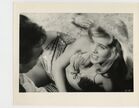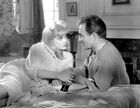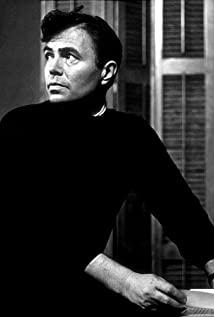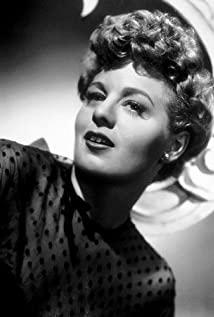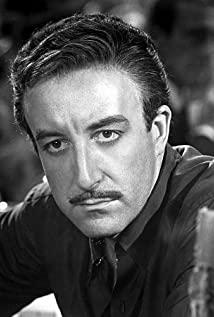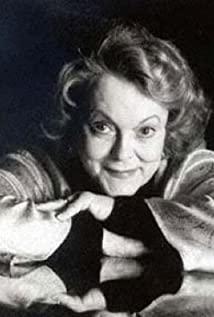Note: This article is from the public account [Flame Star], which analyzes classic movies.
"Above and after everything there is only - Lolita." - Lolita
In the novel "Lolita", Lolita is a precocious 13-year-old American girl. Fascinated by Hollywood, grew up wanting to make movies and be a big star. She lost her father when she was young, and there is a mother who is looking for Erchun at the age of a wolf like a tiger. In the eyes of her mother, she is a naughty and hyperactive child who is disobedient to discipline. In Humbert's eyes, she is the light of his own life, the fire of desire, where his soul resides, and the source of all evil.
So what kind of person is Lolita?
One | Innocent, precocious, and rarely prepared for people
She is a naive girl with little defense against others.
When we met, we basked in the sun in a bikini in the courtyard. Facing strangers, he was not afraid. He didn't find the other party's malicious eyes, but smiled instead.
Humbert is obsessed with Lolita, but he follows the rules and does not dare to take a step forward. He can only write his thoughts about her in his diary. In the end, it was not Humbert but Lolita who cut the forbidden thread—the first time between the two was actively seduced by Lolita. At this time, Lolita did not know the news of her mother's death. And he wasn't her first lover. She had been hanging out with other men since the summer camp.
This experience seems to show that Lolita is a womanizer who is well versed in love affairs. She has maturity and temptation beyond her age, and seduces the men around her with her femininity.
But that assumption was not long before it was overturned. Because what Humbert hates most are mature women. If he likes mature women, why not Mrs. Haze, the sexy pussy? Lolita is in his relationship, and what attracts him most is her baby-like innocent and pure posture. It was not the seduction of her mature female body that attracted Humbert, but her every movement, her youthful insensibility, her childlike purity and mischief: the cheap lipstick she left on the glass door Yin, she cuddled on Humbert's shoulder like a baby, kicking Humbert with her mischievous joy.
Lolita lost her father at an early age, her mother did not think highly of her, and there was a lack of caring relatives around her, and her relationship with her mother was not close. A father role is needed in her world. At this point Humbert appeared, a learned middle-aged man, charming, mild-mannered, and obedient to himself. Inevitably, Lolita, who is eager for fatherly love, needs this role, so she gets close to him from time to time.
From the picture below, posted on the wall of Lolita's bedroom, a man holds his beloved daughter while Lolita writes H.H, the hero's name, Humbert Humbert. We can see that Lolita sees Humbert as her own father. So she acts like a spoiled child from time to time and makes trouble in Humbert's room. Isn't this the little daughter's expression of her love for her father?
Including the film's subsequent appearance of Quilty, the man who coaxed Lolita from Humbert's side, has also appeared in Lolita's life since childhood. His mother, Mrs. Blacks, adored Quilty, set up clubs to read his plays, and even danced with him. Quilty was featured very early in Lolita's life. Even her fillings went to Quilty's relatives.
In addition, Lolita is in the process of transformation from girl to woman. From time to time, the innocence of girls and the temptation of women are intertwined, and the naive temptation is intertwined. In the eyes of Humbert with ulterior motives, it is no different from Lolita. Tower is seducing him.
We can see from Humbert's sometimes contradictory statements that the image of Lolita is contradictory. She is sometimes innocent and mischievous like the 13-year-old girl around her, sometimes secretly insinuating, sending affection to Humbert, manipulating men, and mature like a woman in her twenties. These two extreme traits cannot be present in a girl at the same time.
But if we take a closer look at the novel's title and preface, we see it all.
The novel, also known as "Confessions of a White Widowmaker," in the preface, the doctor points out that Humbert was a mentally ill person who spent three years in a mental hospital for treatment before he came to the United States. And after discharge from the hospital, he did not take medicines on time to control his condition. And the entire book is excerpted from Humbert's diary, entirely from the point of view of Humbert, a mentally ill person. It is no wonder that the image of Lolita is complex and contradictory.
Ⅱ|Resistance and accusation hidden behind the veil
So the whole book Lolita has no voice?
No, she also had brief vocalizations. She didn't always hide under the veil, and occasionally she walked up to the stage and cried.
"You pervert"
From the title, she has obvious hatred and contempt for Humbert.
And as Humbert has grown closer to her, the abhorrence has clearly grown into an indictment.
"Look what you've done to me. I can go to the police and accuse you of raping me. You dirty, dirty old bastard"
Full of hatred and defiance about the relationship she was forced to have with Humbert, and fed up with her deformed relationship with Humbert, she began to really think about how to get out of her current situation:
"We live in a stuffy cabin like this, work together to make up ten, and we can never live like normal people, how long will it take?"
"Kill me like you murdered my mother"
Apparently Lolita is not completely ignorant, nor is she as mediocre as Humbert describes, but she was covered by Humbert. When she had a chance to speak, she knew she was living with Humbert and she vented her anger and dissatisfaction. Although the resistance was weak, and although she was driven back behind the veil by Humbert with just one sentence, Lolita's true character was still revealed.
At the end of the film, Humbert confesses that he dresses up as his infatuated lover and prays that Lolita will one day return to him. Finally, at the end, Lolita had the opportunity to lift the veil by herself and express her accusation bravely and truthfully: You mean you have sex with me, and you will give me money.
This is Lolita's definition of her two years with Humbert: in Lolita's view, it's not love, it's just a deal, exchanging flesh for money, he's a whore, and she's a prostitute.
Humbert ruined her life.
She could have been a lady of the upper class, enjoying the life of a child her age, because of his inexplicable childhood trauma and hurricane-like obsession from nowhere, indirectly killed her mother and forced her to wander on the road for 2 years, Afterwards, in order to escape from the abyss, she trusted inhumans and mistrusted the pornographic writer Quilty. After that, Lolita, who had no knowledge or money, became a waitress and lived a hard life before she found a warm and loving mediocre man.
According to the current husband's words: He thought Lolita was a lady who ran out of high society to play. So who changed all this? It was Humbert.
This is bloody accusation and anger, not absurd and morbid love. No matter how strong the love is, it can't cover up the unequal relationship between Lolita and Humbert. He is Lord, Husband, and Tyrant. She is a slave, a concubine, a plaything.
Note: The pictures were selected from the 1962 version and the 1997 version of the Lolita adaptation film.
View more about Lolita reviews



